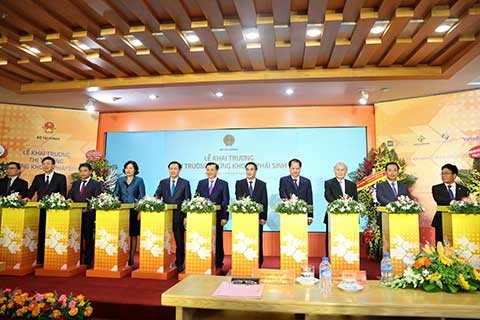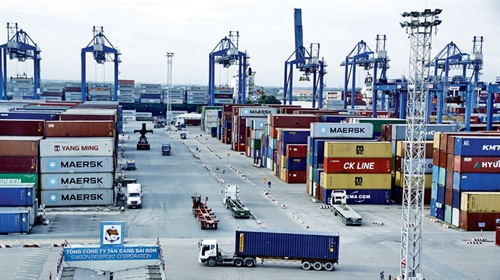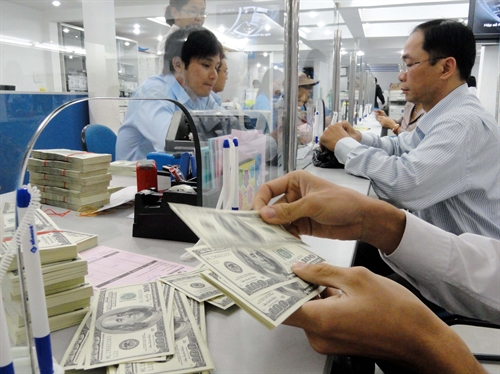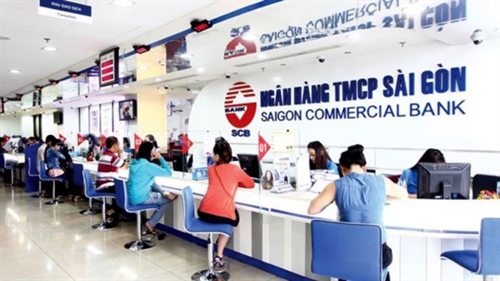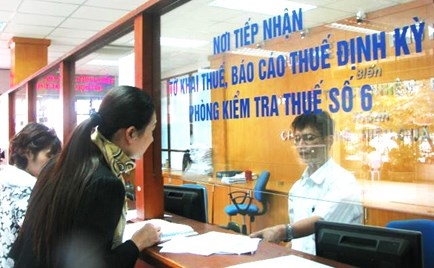The Government on August 7 issued a decree on state monopoly over 20 groups of goods and services, including goods and services for national defense and security, production of gold bars, and import of cigarettes and cigars.
According to Decree 94, to take effect from October 1, the manufacture, trading, import-export and transit of industrial explosives; import-export of gold material for production of gold bars; issuance of lottery tickets; and management, import-export, purchase, sale, storage and preservation of goods named in the national reserves list are state-monopolized activities.
The state monopoly also applies to banknote printing and coin minting, issuance of postage stamps, production, import-export, trading, transport and storage of fireworks and provision of firework-related services.
Other activities that fall under exclusive state control include transmission and regulation of the national power grid and construction and operation of multi-purpose hydropower plants and nuclear power facilities of special socio-economic importance.
The services monopolized by the State cover public maritime services such as operation of navigation light systems and public navigable channels, management and operation of coastal information stations, air traffic, aeronautical information and aviation search and rescue services, along with forestry services in special-use forests, excluding those used for tourism purposes.
Management and exploitation, excluding maintenance, of state-invested national and urban railway infrastructure systems; and management and exploitation of inter-provincial and inter-district irrigation works and sea embankments are placed under the State’s exclusive rights.
The monopolized services also include publishing, exclusive of printing and distribution activities; maintenance, management and exploitation of public postal service networks; and provision of public services for newspaper publishing.
 |
| Operating the power generation units of Dong Nai 3 hydropower plant__Photo: Ngoc Ha/VNA |
Decree 94 states that state monopoly is only established over essential goods and services related to national defense and security or national interests and goods and services in which other economic sectors are not interested or cannot participate.
The geographical area under the state monopoly is the entire territory of Vietnam, according to the decree.
Government authorities can implement the monopoly over the 20 goods and services listed in the decree by themselves or assign other organizations or individuals to do so.
According to the decree, monopolized commercial activities must be implemented under strict surveillance of state management agencies.
Ministries, ministerial-level agencies and local administrations are not permitted to create monopoly over other goods and services. Goods and services related to national defense and security are to be regulated by the Minister of National Defense and Minister of Public Security.
According to the Ministry of Industry and Trade (MOIT), Decree 94 is issued to detail Clause 4, Article 6 of the 2005 Commercial Law which stipulates: “The State may monopolize for a definite period of time commercial activities with respect to a number of goods and services or in a number of geographical areas in order to ensure national interests.”
The decree was designed on the principle of neither expanding nor increasing the number of fields to be monopolized by the State and conforming with the country’s international commitments.
The state monopoly of the goods and services listed in the decree is currently governed by various laws, such as the laws on electricity, postal services, publication, civil aviation, railways, and some government decrees.
The list of 20 goods and services was drawn up based on not only the above regulations but also the country’s international commitments, according to the Ministry.
In the course of implementation, the list may be revised at the proposal of ministries, ministerial-level agencies, provincial administrations to meet state management requirements or of businesses when they wish to participate in, according to the decree.
When the drafting of the decree was in progress, there were worries that the establishment of state monopoly would somehow adversely affect the business environment.
Lawyer Truong Thanh Duc from BASICO Law Firm said the Commercial Law’s provision on state monopoly has been applied for the last 12 years.
“It is the time to review and narrow down the scope of state monopoly in line with the development of a market economy,” he said .
Meanwhile, Dau Anh Tuan, head of the Vietnam Chamber of Commerce and Industry’s Legal Department, said Decree 94 mentions nothing about the period of time for exercising the state monopoly.
It could be understood that the state monopoly may last indefinitely, and this did not conform with the Commercial Law, he said.
Decree 94 retains state monopoly over the production of gold bars and import and export of gold material for this production.
Commenting on this provision, chairman of the Vietnam Gold Trading Association Nguyen Thanh Long said it ran against Government Decree 35 on support for and development of enterprises up to 2020 which says the State guarantees the right to equality for all enterprises, regardless of their type and economic sector in terms of access to capital, resources, land, and investment and business opportunities.
However, banking experts backed the provision, saying that it was a necessary measure to ensure effective state management over gold trading. The production of gold bars and import and export of gold material are actually exclusive activities of the central bank to stabilize the gold market and administer foreign exchange management and, therefore, should not be regarded as business activities.
The issuance of the list would help improve the transparency in state monopoly activities, according to the MOIT.- (VLLF)
